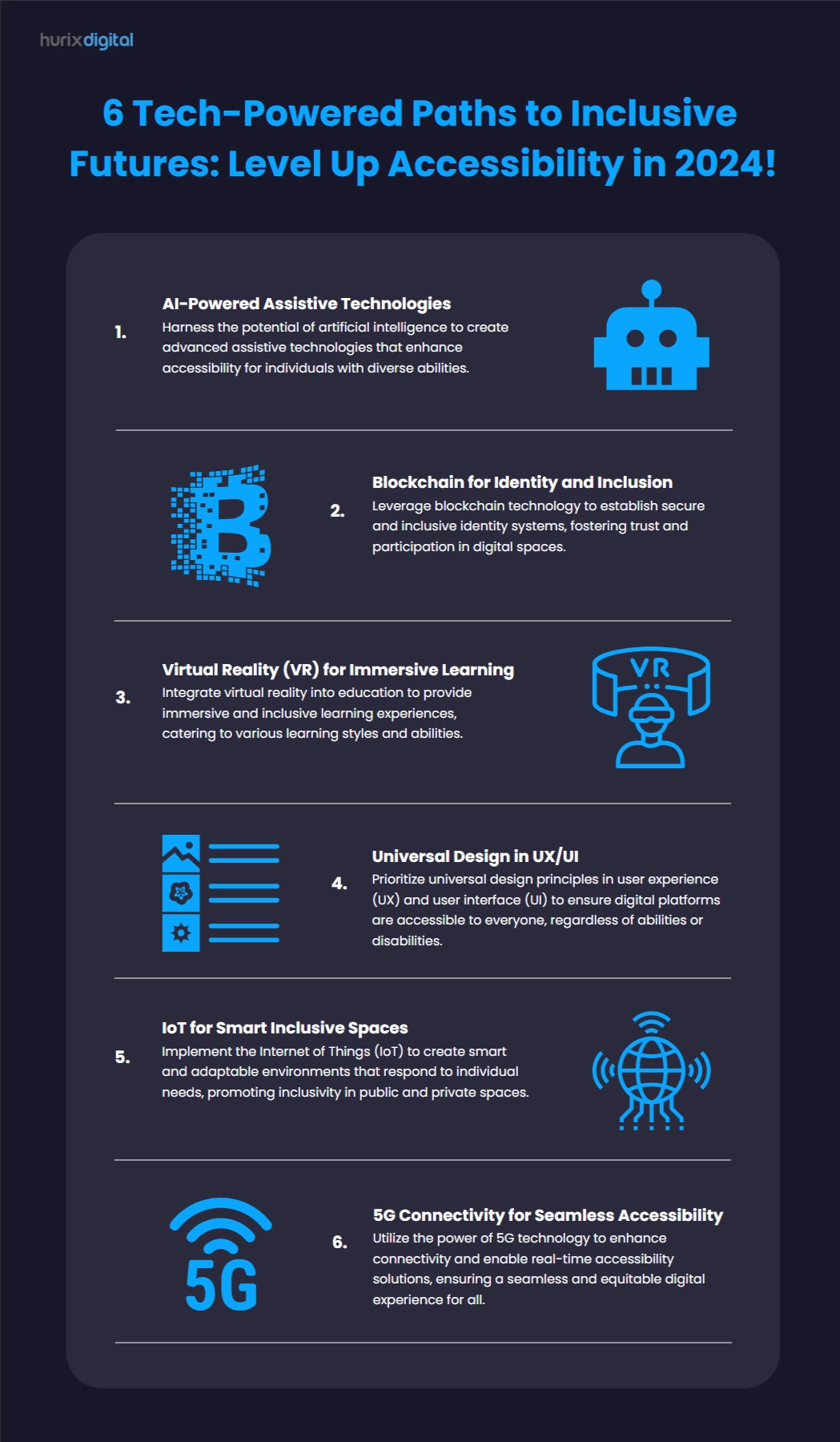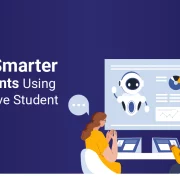Embark on a journey to inclusive futures! Explore six tech-powered paths in 2024: AI powered assistive technology, blockchain for identity & inclusion, virtual reality for immersive learning, universal design in ux/ui, iot for smart inclusive spaces & 5g connectivity for seemless accessibility. Level up accessibility with these transformative insights!
Chart the future with Hurix Digital! Level up accessibility in 2024 with tech-powered paths. Embrace inclusive futures. Contact us now! to level up your accessibility with us!

Understanding Accessibility Technology
The need for accessibility technology is increasingly urgent. As digital spaces grow, inclusivity for all individuals, regardless of abilities, is crucial. By focusing on innovative technologies, society can create environments that cater to diverse needs.
Artificial Intelligence in Accessibility
AI-powered assistive technologies are revolutionizing interactions with digital content. These tools offer tailored support, such as:
- Speech recognition software for mobility challenges.
- Text-to-speech applications for visual impairments.
A 2022 report indicates AI in assistive technology could enhance the lives of over 1 billion people globally.
Blockchain for Secure Identity Management
Blockchain technology provides secure identity systems, fostering trust and enabling full participation for individuals with disabilities on digital platforms. By creating immutable records, blockchain helps prevent misidentification and fraud, which can hinder access.
Virtual Reality in Education
Virtual reality in education enhances learning experiences by accommodating various learning styles, making education more engaging and inclusive. Studies show immersive environments can improve retention rates by up to 75%.
Universal Design in User Experience
Universal design in UX/UI is vital for accessible digital platforms. By considering all users, designers can create user-friendly interfaces. Key strategies include:
- Simplified navigation.
- High-contrast visuals for readability.
Internet of Things for Inclusive Spaces
The Internet of Things (IoT) significantly contributes to adaptable environments. Smart technologies can adjust lighting, temperature, and accessibility features based on user preferences, promoting inclusivity in public and private sectors.
5G Connectivity
5G technology enhances connectivity, crucial for real-time accessibility solutions. With faster data transfer, individuals can access resources seamlessly, ensuring a fair digital experience. Research suggests 5G could improve access for over 3 million people with disabilities in urban areas.
Conclusion
Investing in accessibility technology is essential for a more inclusive future. By embracing advancements like AI, blockchain, VR, universal design, IoT, and 5G, society can create opportunities for everyone, ensuring no one is left behind.



